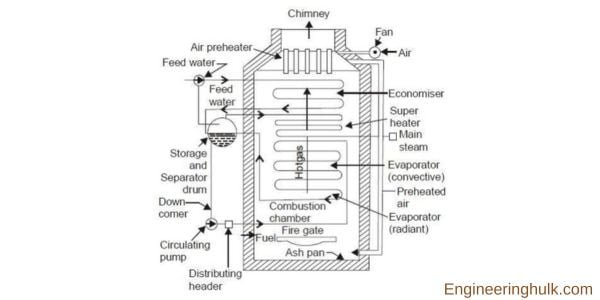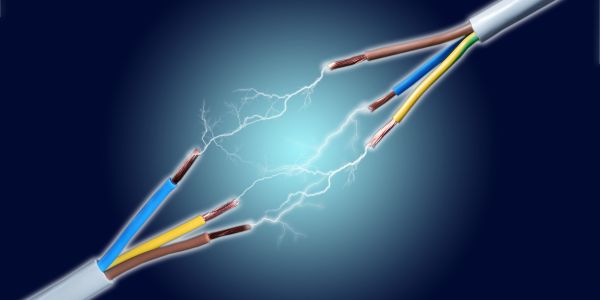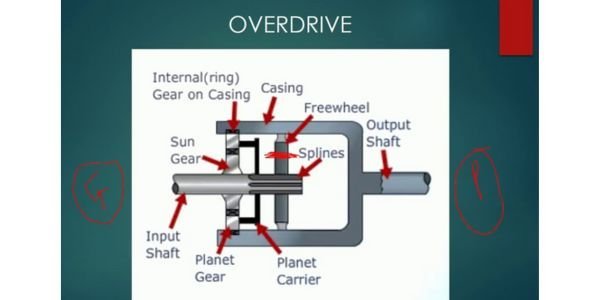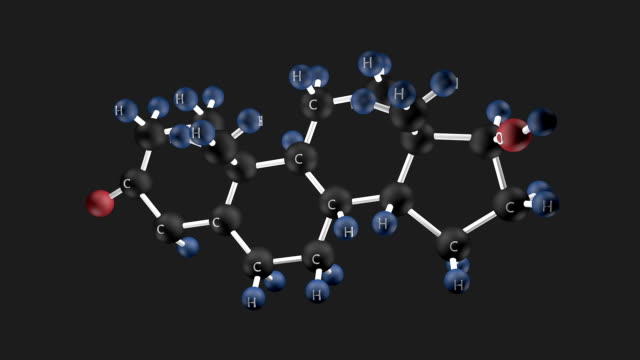Table of Contents
IDR full form:
International Depository Receipts (IDRs) are a financial instrument used to facilitate the trading of foreign securities in global stock markets. Foreign companies issue IDRs to allow investors to buy security without having to go through the process of obtaining a foreign brokerage account.
IDRs were first introduced in the early 1990s to allow investors to access global markets without having to go through the lengthy and expensive process of obtaining a foreign brokerage account. Large foreign companies typically issue IDRs, usually listed on a global stock exchange.
The IDR acts as a receipt for the foreign company’s shares, which can then be traded on the investor’s domestic stock exchange. IDRs are attractive to investors as they provide access to foreign markets without the need to open a foreign brokerage account.
Additionally, IDRs can provide investors with exposure to foreign markets without having to take on the exchange rate risk associated with investing in foreign currencies.
IDRs are similar to American Depository Receipts (ADRs) in that they provide access to foreign markets to domestic investors. However, the major difference between the two is that US-based banks and brokers issue ADRs, while IDRs are issued by foreign financial.
The benefits of International depository receipts:
International depository receipts (IDRs) represent ownership in a foreign-based company’s shares, and they offer several benefits to investors and companies.
1. Liquidity IDRs provide investors with increased liquidity as they can be traded on exchanges around the world, allowing investors to access international markets more easily than ever before. This increased liquidity leads to more efficient and transparent markets, which benefits both investors and companies.
2. Diversification IDRs allow investors to diversify their portfolios by investing in foreign companies. This diversification can help reduce overall portfolio risk and provide access to companies and markets that may not be accessible to domestic investors.
3. Access to Capital IDRs can provide companies with access to capital from international investors who may not otherwise be able to invest in the company. This can be especially useful for companies looking to access global capital markets and can help reduce the cost of capital for the issuing company.
4. Reduced Transaction Costs IDRs can help reduce transaction costs for investors as they are traded on exchanges around the world, eliminating the need for investors to convert their currencies. This can also help to reduce the risk of currency fluctuations for investors.
Overall, IDRs offer a number of benefits to both investors and companies. They can provide increased liquidity, diversification, access to capital, reduced transaction costs for investors, and access to global capital markets for companies.

The types of International depository receipts:
An International Depository Receipt (IDR) is a financial instrument that is used to represent a foreign company’s securities in another country’s financial markets. IDRs provide a mechanism for foreign companies to access investor capital in a foreign market without having to list on the foreign market’s exchange.
IDRs, also known as American Depository Receipts (ADR) or Global Depository Receipts (GDR), are denominated in the foreign company’s local currency and traded on the foreign market’s stock exchange. There are two primary types of International Depository Receipts: Sponsored and Unsponsored.
Sponsored IDRs are issued and maintained by a foreign company that has entered into a formal agreement with a depositary bank in the foreign market. The foreign company will deposit a certain number of its own securities with the depositary bank, and the depositary bank will then issue and maintain corresponding IDRs for trading on the foreign market.
IDRs, on the other hand, are issued and maintained by a depositary bank in the foreign market without the involvement of the foreign company whose securities are represented.
These IDRs are typically traded on the over-the-counter (OTC) market rather than the stock exchange and are not subject to the same regulations as sponsored IDRs.
In both cases, IDRs can be bought and sold like any other security on the foreign market. Investors who purchase IDRs are effectively buying a stake in the foreign company and are entitled to receive any dividends and capital distributions that the company may pay out.
Likewise, any capital appreciation in the value of the IDRs will be reflected in the value of the foreign company’s securities.
The process of issuing International depository receipts:
International depository receipts (IDRs) are securities issued by a company in a foreign country that provide investors with the same economic benefits as shares in the company. The process of issuing IDRs involves several steps:
1. Determine the Eligibility Requirements: The issuer must determine the eligibility requirements for offering IDRs. This includes the minimum number of shares that must be issued, the type of shares that can be issued, and the countries where the offering is available.
2. Find a Depository: The issuer must find a depository bank or institution that is willing to act as the issuer’s custodian for the IDRs. The depository must also be able to provide the services necessary for the offering, such as registration, clearance, and settlement.
3. Prepare the Offering Documents: The issuer then prepares the offering documents, which must be approved by the securities regulator in the country of the offering. These documents include the prospectus and the offering memorandum, which provide information on the issuer and the offering.
4. Register and Clear the IDRs: The depository must then register and clear the IDRs with the relevant securities regulator in the country of the offering. This process ensures that the IDRs are properly accounted for and that they can be traded on the stock exchange.
5. Issue the IDRs: Once the IDRs have been registered and cleared, the issuer can issue the IDR to investors. The IDRs are typically offered in a public offering, with the issuer setting a price for the offering.
6. Settle the IDRs: Once the offering is complete, the depository must settle the IDRs with the investors. This involves transferring the IDRs to the investors’ accounts and making sure that the IDRs are traded on the stock exchange.
7. Monitor the IDRs: Once the IDRs have been issued, the issuer must monitor the IDRs to ensure that they are trading properly on the stock exchange.
This involves monitoring the performance of the IDRs, checking for any irregularities, and responding to any issues that may arise.
The benefits and challenges of International depository receipts:
International Depository Receipts (IDRs) are a form of foreign investment that allows companies to raise capital in foreign markets without issuing new or additional shares.
This form of investment enables companies to access global capital and diversify their investor base.
Benefits of IDRs:
1. Diversification of investor base: IDRs allow companies to access a larger global investor base, enabling them to raise capital from a wider range of investors. This can help diversify and strengthen their investor base, leading to increased liquidity for the company’s shares.
2. Increased capital availability: As IDRs allow companies to access foreign capital, they can provide access to additional capital. This can help finance expansion plans or other projects and improve the company’s overall financial health.
3. Lower costs: IDRs can help to reduce the cost of raising capital. By eliminating the need to issue new shares or additional shares, companies can save on the fees associated with such transactions.
4. Increased liquidity: By having a wider range of investors, companies can increase the liquidity of their shares.
This can help to make their shares more attractive to potential investors, leading to increased demand and higher share prices.
Challenges of IDRs:
1. Regulatory complexities: IDR involves a complex set of regulations and compliance requirements, which can be difficult to navigate. Companies need to ensure that they meet all of the requirements to issue and manage IDR successfully.
2. Currency fluctuations: IDRs are denominated in foreign currency, so companies need to be aware of and manage the risk of currency fluctuations. This can lead to losses if the exchange rate changes unfavorably.
3. Tax implications: IDRs can have a range of tax implications, depending on the jurisdiction in which they are issued. Companies need to be aware of the tax implications of issuing and managing IDRs in order to ensure that they remain compliant.
4. Investor protection: IDRs are subject to the laws and regulations of the jurisdiction in which they are issued.
Companies need to ensure that they are providing adequate investor protection in order to maintain the trust of their investors.
The conclusion:
International depository receipts (IDRs) are financial instruments that enable foreign companies to list and trade their shares on markets outside of their home country.
They are beneficial for investors, as they allow access to international stocks without the need to open a foreign brokerage account. The conclusion of International Depository Receipts involves the redemption of these receipts.
This happens when the underlying shares are sold on the secondary market and the proceeds are paid to the issuer. The issuer will then redeem the IDRs and return them to their respective holders.
In some cases, a portion of the redemption proceeds may be kept as a fee by the issuer or the depository. In addition, the issuer will also be responsible for ensuring that the taxes owed to the relevant country are paid on the proceeds of the sale.
This will vary depending on the country of issuance and the applicable laws. Finally, the issuer will also need to ensure that all required regulatory filings are made in order to facilitate the redemption process.
This includes filing with the relevant exchange, the issuer’s home country, and any other relevant jurisdictions.
Overall, the conclusion of International Depository Receipts involves several steps and requires careful coordination between the issuer, its depository, and the relevant regulators.
By ensuring that all of the necessary steps are completed, it is possible for investors to safely access international stocks without having to open a foreign brokerage account.
The References:
International depository receipts (IDRs) are securities that are issued by a depositary bank in one country and represent a company’s publicly traded equity that is listed on a stock exchange in another country.
IDRs are denominated in the currency of the country in which they are issued. IDRs enable companies to access global capital markets and allow investors to invest in foreign companies without having to buy the underlying shares.
IDRs are usually issued by a depositary bank in the country where the underlying shares are listed and subject to that country’s laws and regulations. They are not listed publicly and can only be traded on the over-the-counter (OTC) market.
IDRs are typically bought and sold through brokers and investment banks. The depositary bank acts as an intermediary between the issuer of the IDRs and the investor.
It is responsible for issuing, registering, and transferring the IDRs and ensuring that they are in compliance with the laws and regulations of the country where the IDRs are issued.
In addition, the depositary bank is responsible for paying out any dividends or other distributions on the IDR. IDRs are typically issued in the form of American depositary receipts (ADRs) or global depositary receipts (GDRs).
ADRs are typically issued by US depositary banks, while depositary banks issue GDRs in other countries. IDRs are an attractive option for companies that want to raise capital in foreign markets and for investors who want to invest in foreign companies.
They provide access to a large pool of potential investors and are a relatively cost-effective way to raise capital.
Furthermore, IDRs provide investors with the potential for significant returns due to the fluctuating exchange rates between local and foreign currencies.
Also, read Tally full form
































Comment on “IDR full form”
Comments are closed.